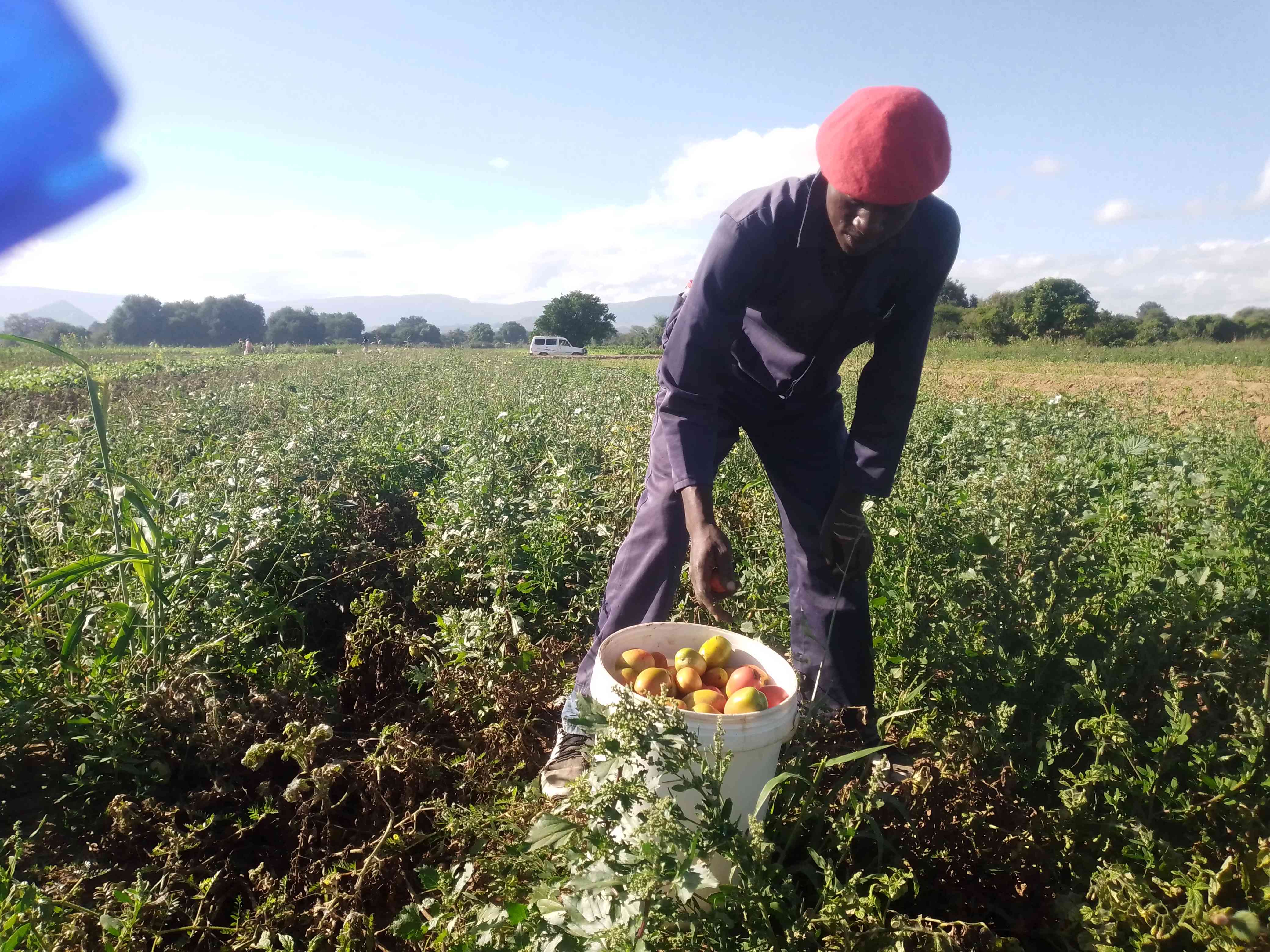
It's 9am on a sparsely-cloudy morning, Sam Ganga (32), clad in a faded navy blue overall, picks up fresh tomatoes from his family field. The one acre land under Maunganidze Irrigation Scheme near Birchenough Bridge, Manicaland province, Ganga explains how he started farming at the age of eleven whilst in primary school.
After completing secondary school in 2006, Ganga was allocated a small portion of land by his parents to commence legume and maize production. From then on he has managed to secure food for home consumption while earning a few dollars from surplus harvest.
"I started earning a living through farming since I was a teenager. I produce food for my family one season after the other, and earn a few dollars to cater for other basic needs. I normally sell sugar beans, maize, peas and other fresh produce to these greedy middlemen from Mutare," he said.
Ganga represents many potential small holder farmers located in rural areas utilizing irrigation schemes and are usually left out in Zimbabwe's production chain. Their efforts to turnaround fortunes of agriculture and help bring back Zimbabwe to "the breadbasket of Africa" status are often overlooked.
Agricultural production declined while trade balance worsened in the southern African nation after government initiated a fast-tracked Land Reform Programme in 2001 which saw mass exodus of white commercial farmers after losing their farms to black citizens.
Rain fed agriculture is no longer sustainable due to the devastating impact of climate change as evidenced by recurring droughts.
The droughts have resulted in reduced yields leaving scores of people food insecure. This has prompted climate migration where farmers are now overcrowding pieces of land near water sources in the eastern parts of the country.
Government and non-governmental organizations are encouraging production of drought resistant crops like sorghum and millet.
Apart from climate change, Ganga said their yields are also being affected diseases as most farmers cannot afford chemicals.






